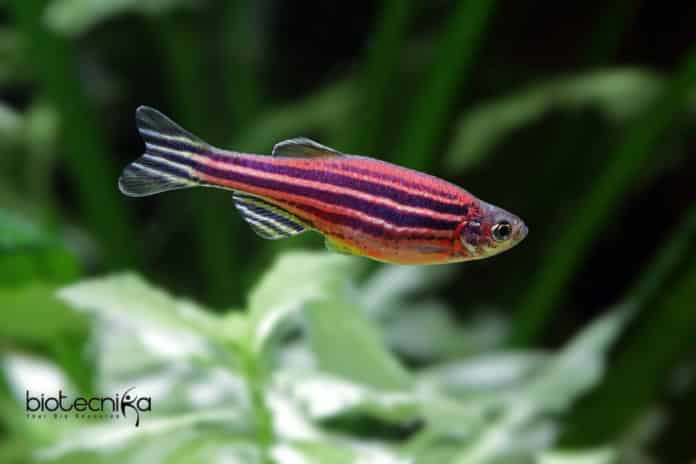Zebrafish Regenerate Damaged Retina
Vanderbilt University researchers reported that the tiny zebrafish might hold the secret to regenerating damaged retinas in humans.
Currently, there are few effective treatments for retinal degenerative diseases such as age-related macular degeneration. AMD is the most common cause of blindness in thousands of Americans over age 55. The same case may be observed in the case of other diseases, including retinitis pigmentosa. Many of them are blind by the age of 40.
Mammals cannot regenerate retinal neurons that are lost or damaged by disease. Whereas in bony fishes like the 1-inch-long zebrafish, retinal damage triggers a spontaneous regenerative response that restores both retinal structure and function. Zebrafish is s widely used as a “model organism” in biological and medical research studies.
The cells and structure of the retina are highly conserved among the various group of organisms right from fish to humans. Therefore, understanding how zebrafish regenerate damaged retinas could lead to new ways to enhance retinal regeneration in people.
Zebrafish Regenerate Damaged Retina- What is the Mechanism?
James Patton, Ph.D., an
d colleagues in the Department of Biological Sciences at Vanderbilt University found that microRNA- miR-216a is a critical factor which regulates the expression of Dot1l, an enzyme involved in regulating gene expression.The researchers demonstrated that suppressing miR-216a initiates the differentiation and proliferation of Müller glia (MG). It is the source of regenerated neurons in the zebrafish retina, in part by releasing inhibition of Dot1l. The next step is to test whether suppressing miR-216a can induce MG reprogramming and proliferation in mammals.
James Patton said that Müller glia constitutes an adult stem cell in the zebrafish retina. The goal of his team is to identify pathways and genes that could be activated to induce similar behavior in the human retina. He is the director of the Interdisciplinary Graduate Program at Vanderbilt.































its a good topic. please try to gather some info on plant extracts use in human body